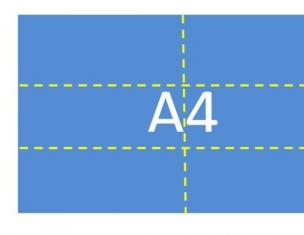Pension changes are actively discussed in Russia. Earlier, one version of the reform was voiced by Medvedev, which caused a lot of discontent among the ordinary population. After some time, the President of the Russian Federation spoke, who fully supported the legislative project of the head of the Government, but to reduce the negative effect he proposed some mitigating conditions.
According to the plan, the reform should begin to take effect in 2019. Russians still have not come to terms with the innovation, but government authorities do not react to the mood of the people. The other day there was another “statement” by Medvedev that the retirement age in the country is planned to be changed again. Let’s look at what this means and whether it’s true in as much detail as possible.
Medvedev on pension reform
When the news about pension reforms in our country became known, Medvedev spoke about a gradual increase in the age limit for retirement. And for men the bar was set at 65, and for women 63 years. Benefits will remain for certain categories of people, but the changes will not affect existing pensioners.
Opening the Government meeting, Medvedev began with the phrase: “ We all understand that changes in our country are overdue" A difficult but forced decision was made. And without it, the state will not be able to move forward, there will be no improvement in people’s living standards, or improvement in the economic situation.
Medvedev especially emphasized that it is necessary to raise the retirement age, since the country will not cope without such an innovation. It was planned to be quite long transition period. Starting in 2019, with men reaching retirement at 65 in 2028 and women retiring in 2034.
The Russians really did not expect such a statement, since, as they say, nothing foreshadowed such a disaster. But as practice shows, this is only the beginning.
After Medvedev's speech, the President spoke some time later. The people hoped that he would cancel the pension reform, but this did not happen. Although Putin voiced some concessions.
In October 2018, Putin signed a document amending pension legislation. According to the document, the age will increase by five years for everyone - men will retire at 65, and women at 60.
Medvedev's new statement - will they raise the retirement age again?
Medvedev’s “statement” is being actively discussed on the Internet, during which it became clear that the adopted pension reform requires adjustment, and the retirement age will have to be raised more than once.
An image taken in the Mayak radio studio quickly spread on the Internet. The head of government, apparently, gave an interview to journalists. The caption of the image included a quote: “ We do not rule out that the retirement age in the Russian Federation will have to be raised again».
Under the photo of the head of the Government there is text stating that Russians should not accept the current version pension reform"as the ultimate truth." One gets the feeling that Medvedev is confident that the age limit will be raised again, but he doesn’t want to talk about it directly yet.
There is no reliable information that the picture is actually Medvedev’s statement; perhaps this is another lie in the light of the reform. Despite this fact, the photo with the quote caused a lot of discontent among Russians.
“It’s time to get out of this country,” “There’s nothing left of Russia,” - in social networks people are literally seething with indignation. And users are wondering what level awaits us. Maybe 70 years?
Let us note once again that there was no official statement, a video with Medvedev’s speech and a phrase about the next increase retirement age, also no. We can only guess whether this is a lie or whether the Government is “testing” the waters and the mood of Russians in order to introduce further amendments to pension legislation over time.
The truth about pension reform
The retirement age, established in the USSR in 1932, is still in effect in Russia to this day. However, in May 2016, a bill was passed aimed at increasing the retirement age of civil servants and came into force in January 2017. With the entry into force of the new law, certain categories of persons received the right to register early retirement, taking into account compliance with the requirements for the amount of special experience of a person, his type of activity and other circumstances.
What are the conditions for retirement in 2017? What are the requirements for retirement age? Under what conditions is early retirement possible? Is the retirement age expected to increase? We will try to answer these questions in this article.
Old age insurance pension
Insurance pension– these are regular cash payments that are formed from insurance premiums accrued by the employer during the official work of its employees and a fixed payment financed by the state. There are 3 types of insurance pension:
- old age (a person has reached the legally accepted retirement age of 60 years for men and 55 years for women);
- for disability (the citizen received/confirmed disability);
- in case of loss of a breadwinner (due to the death of one or more breadwinners in the family).
The conditions for accessing each type of pension are different. The main conditions for assigning old-age pension payments in 2017 are:
- compliance with the age giving the right to a pension (55/60 years);
- having the required number of points (11.4);
- availability of the required insurance experience (8 years).
The length of the insurance period depends on the year in which the person applies for pension payments. Every year its value increases by a year until it reaches 15 years. Thus, applicants in 2018 must have 9 years of experience, after 2024 - 15. If this is not available, the person is assigned social benefits.
Changes to the Federal Law “On Amendments to Certain Legislative Acts” Russian Federation in terms of increasing the retirement age for certain categories of citizens" dated January 1, 2015 No. 143-FZ obliges all applicants to have an IPC (individual pension coefficient), which in turn grows annually by 2.4 units and will reach 30 points by 2024. By the amount The IPC is influenced by the presence of official employment, the amount of all contributions made by the employer to the Pension Fund, and the length of the working period. Thus, the IPC has a direct impact on the amount of pension payments.
Important! Until January 1, 2015, the pension was called a labor pension, consisted of an insurance and funded part and was regulated by the Federal Law “On Labor Pensions” dated December 17, 2001 No. 173-FZ. In 2015, in connection with the entry into force of the Federal Law “On Insurance Pensions” dated December 28, 2013 No. 400-FZ, the labor pension was eliminated, and its parts became full-fledged types of pensions
Registration of old-age pension payments is carried out on an application basis - this means that a citizen must contact the Pension Fund office with a written application, as well as a package necessary documents in order to receive the monthly payments due to him. They are not assigned to insured persons automatically.
Pension payments may be increased due to a certain coefficient, which is applied if the applicant applied later than he could in accordance with the current law. Annual indexation or possible recalculation of the assigned amount can also lead to an increase in the pension.
More detailed information You can read about the old-age insurance pension in the article.
Early retirement
A pension assigned by the Pension Fund of Russia in connection with certain circumstances before the applicant reaches the generally accepted retirement age is called early. The requirements for insured citizens who wish to receive insurance payments ahead of schedule are described in detail in Articles 30, 31 and 32 of the Federal Law “On Insurance Pensions”.
Employees of certain professions and persons belonging to certain social groups, as well as citizens who lost their jobs as a result of layoffs while approaching retirement age. The more difficult the working conditions, the sooner a person is given the opportunity to retire. The categories of persons entitled to these payments include:
- workers of underground structures, persons whose work took place during harmful conditions or in hot shops;
- mothers of many children with 5 or more children;
- visually impaired;
- railway workers;
- persons who were involved in operating heavy equipment;
- citizens with rare genetic diseases;
- geological prospectors and search engines;
- employees of sea and river vessels;
- employees of the Ministry of Emergency Situations;
- father or mother of a disabled child;
- guardians of disabled children;
- unemployed men (from 57 years old) and women (from 53 years old) who lost their existing jobs for certain reasons;
- people who have become disabled as a result military service;
- civil servants, teachers, doctors and others.
To apply for an early pension, the applicant must have with him original documents confirming the special experience specified in the application. In addition, you must have a passport, SNILS, work book. Early pension payments are accrued from the date of application to the Pension Fund branch, subject to receipt of the right to it.
Important! Early pension payments will be suspended if the person is officially employed again.
Residents and workers of the Far North
Persons employed in the regions of the Far North, as well as places that are officially equated to these territories, can receive pension payments earlier due dates. In addition, the pension can be indexed and increased in connection with living or working in these territories. Early retirement for workers in the Far North is possible thanks to additional calculations made by employers to the Pension Fund of the Russian Federation throughout the entire period of the employee’s work.
Men are granted pensions from the age of 55, women from 50. To retire, persons working in areas that are officially equated with the regions of the Far North must have 20 years of insurance experience. The retirement age of a person working in the Far North decreases annually by 4 months from the moment his insurance coverage reaches 7.5 years. Moreover, a year of work in areas equated to the territory of the Far North is comparable to 9 months of work in the Far North.
Dependence of length of service in these territories on the age at which an insurance pension is assigned
The retirement age directly depends on the number of years worked in the Far North or areas equivalent to it. The dependence of the length of service obtained in these territories on the age at which the insurance pension is assigned is reflected in the comparative table.
| Experience in the Far North (men) (in years) |
|
Experience in the Far North (women) (in years) |
Age of appointment of pension payments (year and month) |
|---|---|---|---|
| 15 l. |
55 l. |
15 l. |
50 l. |
| 14 l. |
55 l. 4m. |
14 l. |
50 l. 4 m. |
| 13 l. |
55 l. 8 m. |
13 l. |
50 l. 8 m. |
| 10 l. |
56 l. 8 m. |
10 l. |
51 g. 8 m. |
| 9 l. |
57 l. |
9 l. |
52 years old |
| 8 l. |
57 l. 4 m. |
8 l. |
52 g. 4 m. |
| 7.5 l. |
57 l. 8 m. |
7.5 l. |
52 g. 8 m. |
Dependence of length of service on the area in which the citizen worked
In order not to lose years of insurance experience, years of work in places equated to the Far North and in the Far North are equalized or equalized. Thus, it is possible to derive the total amount of insurance experience of one person. To calculate total experience, you can use this table.
| Experience in the Far North |
Experience in the Far North |
|---|---|
| 1 year |
9 m. |
| 2 years |
1 year 6 m. |
| 3 years |
2 years 3 months |
| 4 years |
3 years |
| 5 l. |
3 years 9 months |
| 10 l. |
7 l. 6 m. |
| 20 l. |
15 l. |
Example: Citizen K. worked for 11 years in Severodvinsk (KS) and 2 years in Petrazavodsk (which is included in the list of territories equated to the territories of the KS). 2 years must be equated to the length of service that could have been in the Far North itself. To do this, 2 is multiplied by 9 m, resulting in 1 year and 6 months. The two lengths of experience are added together and the result is 12 years and 6 months of experience. Accordingly, citizen K. is assigned a pension of 50 years and 10 months
Men who have been hunting and fishing for 25 years, and women for 20 years in the Far North, have the right to retire at the ages of 50 and 45. IN in this case The amount of total insurance experience does not matter.
More detailed information on the appointment and registration of early pensions can be found in the article.
Retirement age of judges
From the beginning of 2017, the retirement age of judges will increase by 0.5 years annually. Accordingly, in 2025, pensions will be assigned to male judges at 64.5 years old, and to female judges at 62.5 years old. Not only will the retirement age increase, but also the maximum possible period of work in a position, as well as the amount of insurance coverage. Now this public position can remain with judges up to 65 years of age, and the length of service must be at least 25 years for early exit to retire.
If pension provision was assigned to a person before 01/01/2017, these changes will not affect his payments. The amount of payments assigned to a person before this date was carried out according to the old system of formation of rights; accordingly, a judge could work in his position for only 20 years and retire at the age of 60.
Retirement age of civil servants, including deputies
From January 1, 2017, officials can hold government positions only until they are 65 years old. Previously, the age was limited to 60 years. Heads of civil services will be able to extend their stay in their positions if they wish by contacting the federal government agency or the relevant official. The period of stay can be extended to 70 years; previously, such permission was issued personally by the President of the Russian Federation.
The length of service in a position was also increased; previously it was 15 years, after which an official could apply for a long-service pension. From the beginning of 2017, the length of service will increase by 0.5 years annually. Thus, officials retiring in 2020 will have to have 20 years of insurance experience.
Pension payments to persons affected by radiation and man-made disasters
Citizens injured in radiation or man-made disasters can receive one of three types of insurance pensions. Old-age payments are assigned to victims with a reduced retirement age. The age is reduced depending on the extent to which the citizen was injured and the nature of his injuries.
| Age of reduction of insurance period |
Reasons |
|---|---|
| 10 years |
Liquidators of the Chernobyl accident from 1986 to 1987, evacuated citizens, disabled people as a result of this accident |
| 5 years |
Liquidators of the Chernobyl disaster from 1988 to 1990; citizens with radiation or other diseases as a result of this event; Chernobyl NPP employees |
| 5 years +0.5 years for each year lived in the Chernobyl nuclear power plant zone |
IDPs from the Chernobyl Nuclear Power Plant zone |
| 3 years + 0.5 year for each year lived in the Chernobyl nuclear power plant zone; 2 years + 1 year for 3 years; 1 year + 1 year for 4 years |
Residents from the Chernobyl resettlement zone before their relocation |
| 0.5 years for each year |
Workers of the Chernobyl resettlement zone living in other areas |
A mandatory requirement for those wishing to retire early due to participation in or residence in an area associated with the Chernobyl tragedy is the presence of 11.4 units of IPC in 2017. Veterans or participants in military conflicts also have the right to early payments; for this they will need 20 years of military service and 10 years of insurance experience in civilian life. The person must be at least 50 years old.
Raising the retirement age
From 01/01/2017, the retirement age of government employees will be increased annually by six months to the extreme mark of 65 years. In addition, for the purpose of granting a long-service pension, the minimum insurance period for a position in government agencies will be increased annually by 6 months from 2017. By 2020 it will be 20 years.
In 2016, A. Kudrin, head of the Center for Strategic Research, put forward an initiative to increase the retirement age for all citizens to 63 years. However, Deputy Prime Minister Olga Golodets said that the decision on reform will be made in 2018 after the formation of a new government.
Conclusion
The retirement age of citizens who have the right to retire early is influenced by indicators such as length of service, type of activity, year of expected retirement, disability, presence of 5 or more children, etc. From 2017, the retirement age will be increased annually by 6 months for government employees, officials, judges, deputies and other employees. For other citizens, there are no changes that have come into force yet.
The question of increasing the retirement age from 2017 worries many Russians. The mechanism of financial support for citizens who have lost their ability to work due to age or due to a number of circumstances is undergoing significant changes. It will not be news to anyone that funding Pension Fund not in the best condition.
To overcome temporary difficulties, the government considered a project to abolish , whose annual income exceeds a million rubles. The bill has not received sufficient support, but changes are expected next year that could affect their well-being.
The essence of innovation
M.A. Topilin, minister social protection and labor, announced an increase in the retirement age from 2017. The changes will not affect all segments of the population. The law will come into force on January 1, 2017 and will apply to civil servants. The State Duma adopted the bill in the third and final reading. Now they will retire five years later.
For other citizens, no changes are expected yet. Previously, a bill was being prepared to increase the retirement age in 2017, but O.Yu. Golodets, Deputy Chairman of the Government of the Russian Federation, assured that this issue is being postponed for consideration in 2018.
Let us remind you that today men can count on pension benefits at 60 years old, women at 55 years old. The specified age is 5 years lower than in the countries of the European Union.

Reasons and need to increase the retirement age
There are several circumstances that prompted the State Duma workers to carry out reforms:
- protracted long-term deficit of the Pension Fund, decline in financial revenues over the past decade;
- falling oil prices and depreciation of the ruble, which lead to;
- optimization of the state budget by minimizing the social burden;
- The heavy burden on the Pension Fund has led to the fact that working citizens cannot provide payments to older people.
According to members of the Government, 60 years for men and 55 years for women - early age to end their working career, many of them continue to earn extra money after leaving their official job.
Retirement age in 2017: latest news
An unprecedented excitement is growing around this issue. M.A. Topilin assures that no fundamental decisions to increase the retirement age will be made until 2018. All reforms aimed at saving the state budget will be implemented in stages. Every six months the age limit will increase, which will enable a person to receive an insurance pension.
The bill, which has already been passed, will yield great results. It provides for increased length of service requirements and an increase in the retirement age for civil servants at all levels. The State Duma has great hopes for such a bill: only at the initial stage it will be possible to save more than 600 million rubles.
Opinions were divided. Some believe that the continuation of reforms is unacceptable, since the life expectancy of the population is already very low - 71 years (77 years for women and 65 years for men). Proponents of the reforms cite forecasts that indicate that by 2020, average life expectancy will increase to 80 and 68 years, respectively. What the parties will come to remains unknown; the issue continues to be actively discussed.

Negative aspects of reforms
Many skeptics consider the increase in the retirement age from January 1, 2017 unacceptable, citing the following arguments:
- The low life expectancy of men will not allow them to live until their long-awaited retirement.
- Due to the lack of incentive to earn security for old age, the share of wages “in envelopes” will increase.
- Already today, people over 40 are finding it difficult to find a job; will they have a chance to get the desired position at an age that is obviously accepted as “retirement age”. The result is an increase in unemployment in the Russian labor market.
- The employment centers of the Russian Federation are not coping with their functions; the influx of people of pre-retirement age can disrupt the labor market.
Positive points
The pension fund does not have enough financial resources to provide for citizens who have lost their ability to work due to age or other circumstances. Experts say one of the reasons for this situation is that more than 30 million people are not officially employed and receive income “in an envelope” without paying taxes. But after reaching the age of 55/60 they receive a pension. This leads to a lack of funds, which the state budget is forced to replenish annually.
There is also an opinion that after 20 years the number of pensioners will be twice as large as the officially employed population, which will lead to the need for large influences from the state budget. The solution to this problem, according to experts, could be to increase the retirement age, which will make it possible to minimize the burden on the budget and on the national currency, which today requires support and stabilization.
Positive factors include:
- If it is possible to provide pensioners with jobs, the ratio of workers to citizens who have lost their ability to work due to age will increase. This is a positive development against the backdrop of Russia's aging population.
- With the positive introduction of reforms, it is possible to reduce taxes on the working part of the population and save indexation for pensioners against the backdrop of crisis phenomena.
The Russian Federation, like most countries with developed social standards and problems of the aging of the nation, needs adjustments to the mechanism pension provision, maintaining an increase in the age limit, which is an indicator of working capacity. But the key factors in the demographic development of the Russian Federation are such that the country cannot afford to promptly and decisively introduce reforms. This leads to constant consideration of alternative options.
Latest newsaboutWill the retirement age in Russia be increased in 2017? , sound optimistic.The press service of the Pension Fund states that the agency did not receive assignments from the Government of the Russian Federation on forecasting the dynamics of pension savings in case of raising the retirement age. It follows from this that such an event is not planned yet.
According to Deputy Prime Minister of the Russian Government O. Golodets, this issue will not arise until 2019. However, rumors about the inevitability of this event have been circulating for a long time and persistently.
A little history
Of course, these rumors do not appear out of thin air. Talk aboutwill the retirement age be increased in Russia in 2017, are carried out at all levels - from ordinary workers to government members. For the former this is a matter of vital importance, for the latter - in some way too. Since the beginning of the crisis, the government's top priority has been to cut spending. Reducing social spending is the most obvious solution.
Russia has historically had a very low age at which people can stop working.Our country has never been able to boast of high life expectancy. In Soviet times, when the state's concern for the common man was loudly declared, early retirement provided by the state could indeed be considered a social benefit.
At that time there was no such glaring difference between wages and pensions.The official size of both the first and second was small, but guaranteed by the state. And for many, the work activity was, in fact, difficult, and a person, indeed, arrived at the official retirement age, if not with complete, then with partial loss of ability to work.
Nowadays technology helps solve many everyday problems, and less and less people work physically and simply do not have time to wear out their body.But the retirement age remains the same. Nowadays, many women at 55 and men at 60 are one hundred percent full of energy. Many of the newly minted pensioners do not leave work even after receiving their pension benefits.
About women
Allthe latest news on whether the retirement age will be raised in Russia in 2017, lead to the idea that the stage of gradually preparing the ground for such actions is already behind us: society has already become accustomed to the idea of the inevitability of this. For those who are young now, these plans still look illusory. For people approaching retirement age, this prospect seems frighteningly real.
It turns out to be especially frightening for women. Back in 1932, the age of retirement was set at sixty for men and fifty-five for women. This is the lowest age threshold known. Middle age The start of pensions in almost all countries is 5-10 years longer. And basically The figure for men and women is no different: women have a longer life expectancy everywhere.
This disproportion is especially noticeable in Russia. According to Rosstat, a Russian lives about 72 years. That is, the indicator shows a slight positive trend. At the same time, women live up to seventy-eight years, men - up to sixty-seven.
This figure is very much inferior to the indicators of other countries (81 - Germany, 78 - USA, 83 - Japan), even many of ours former brothers in the Soviet Union (for example, Belarus and the same Ukraine) and even some African countries.
But the difference shows that women manage to spend almost a third of their lives in retirement, while men, after receiving a pensioner’s certificate, generally manage to live for several years. Butfor women in Russiaretirement ageAndin 2017will not increase. 
Are there other options?
Researchers in Russia note several problems that strengthen doubts about the advisability of raising the retirement age.
Supporters of the decision to push back the retirement age, of course, have a bloc of opponents. At the government level, opponents of this decision are almost invisible, but scientists are also not indifferent to this problem. There are already several scientific works analyzing this topic based on sociological, economic and even mathematical research.
Firstly, According to expert medical assessments, the health of the average elderly Russian is worse than his peer from Europe. Secondly, the readiness of a Russian pensioner to continue working - only if retirement significantly worsens the quality of his life. Often, retirees prefer to reduce their needs rather than increase their income.
Thirdly, raising the retirement age is likely to lead to an increase in unemployment due to a slowdown "generational change". It can already be seen that in some cities the share of workers over 55 years old, above average. Most often, we are talking about regional centers with high housing costs, which makes it difficult for the young population to migrate to the city. Due to the lack of an influx of new candidates, existing employees continue to work as long as possible. 
In addition to the desire to maintain their standard of living, in the case of working pensioners, analysts cite two reasons for continuing to work:
- high professional level or unique specialization - and the ability to maintain this level through continuous training;
- what is called “human social capital”, that is, established social connections in the enterprise.
Workers of the second type, unlike the first, are not always effective for production. Often, their main merit is that they have the most long experience work at the enterprise. Their inability and unwillingness to learn and meet new requirements can worsen the situation in the company.
These reasons sound cynical, but one more follows from them problem: employers clearly have no desire to hire people over middle age, regardless of their professional level. That is, there may be a whole layer of people who have not reached the required age for retirement, but have already been thrown out of the labor market. This may increase social obligations, for example, for unemployment benefits.
What's the result?
All in all, If you carefully study this issue, the conclusions are ambiguous. But, despite the arguments against it, the issue can be considered resolved. Aboutwill the retirement age be raised in 2017 in Russia,We can talk for a long time, but there is no doubt about the inevitability of the prospect of an increase.
Most analysts associate the postponement of the decision on the retirement age with the date of the presidential elections.
To maintain the loyalty of the electorate, the president should refrain from making unpopular decisions until 2018. But even if the crisis subsides, hydrocarbon prices normalize (in a positive sense for Russia), and the ruble exchange rate stabilizes, the problem of population aging will only worsen, since programs to improve demographics are not able to produce quick results. 
Adding it all up
Russia has undergone significant changes. Every year the conditions for receiving social payments become more rigid. It is not surprising that many Russians are frightened by the possibility of raising the age at which state assistance is calculated. On at the moment it is 60 years for men and 55 years for women.
However, raising this bar Russian government not in a hurry. According to Deputy Prime Minister Olga Golodets, the authorities will return to considering the issue of the retirement age no earlier than 2018. And in 2017, the transformations will affect only one category of old-age pension recipients - civil servants of all ranks.
The issue of raising the retirement age will be considered no earlier than 2018
Retirement age for officials
From January 1, 2017, the retirement age for civil servants will begin to rise and will eventually reach 65 years. The bar will be raised gradually: annually by 6 months. At the same time, the minimum work experience of an applicant for state assistance will increase from 15 to 20 years. Deputies of the State Duma and the Federation Council will have to work in their positions for 5 years to receive payment in the amount of 55% of the current salary and 10 years for 75%.
The reform will affect civil and municipal employees, as well as persons working in government positions in the Russian Federation and its constituent entities. The innovations will apply only to officials who will continue to hold their posts after reaching the age limit. If a civil servant stops working, his pension will be accrued according to general rules: from 60 years old - for men, from 55 years old - for women.
 The retirement age for civil servants in 2017 will be 65 years.
The retirement age for civil servants in 2017 will be 65 years. The corresponding law was approved by the State Duma in December 2015 and was supposed to come into force on July 1, 2016. However, the need to prepare a regulatory framework forced the implementation of the reform to be postponed for 6 months. Raising the retirement age will save 622 million rubles - a significant amount for the state treasury.
It should be noted that not all deputies accepted the bill with enthusiasm. According to some forecasts, the reform may limit the rights of retired officials in the social sphere. There is an opinion that innovations discriminate against this category of the population. But most MPs are also concerned about the possibility of an aging workforce and the prospect of worsening the problem of youth unemployment.
Retirement age in Russia and abroad
As already mentioned, Russians retire earlier than foreigners. For example, Japanese of both sexes retire at 70, while Americans retire at 65. The average retirement age in Europe is approximately 65 for men and 5 years less for women. But do not forget that this bar is primarily determined by life expectancy in each country. According to these indicators, the Russian Federation is losing to Western countries.
 Retirement age in Western countries is linked to life expectancy
Retirement age in Western countries is linked to life expectancy However, the possibility of raising the retirement age still exists. Russian Minister of Economic Development Alexey Ulyukaev has repeatedly noted that the bar should be raised to 63 years – for both women and men. The Ministry of Finance advocates a more radical option - 65 years for all Russians. Otherwise, the country awaits.
Today, for every 120 economically active citizens there are 100 pensioners. According to analysts, the number of the latter will only increase in the coming years. Thus, the Pension Fund will not have funds to assist them. But we will only find out in 2018 what actions the Russian government will take to avoid a crisis.








